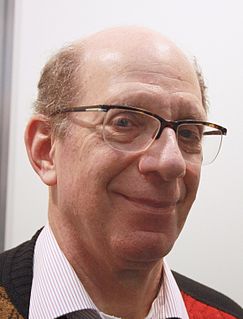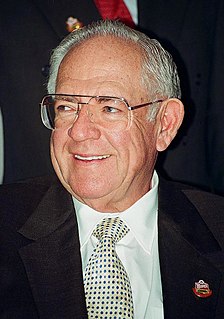A Quote by Richard Stallman
My favorite programming languages are Lisp and C. However, since around 1992 I have worked mainly on free software activism, which means I am too busy to do much programming. Around 2008 I stopped doing programming projects.
Related Quotes
My impression was and is that many programming languages and tools represent solutions looking for problems, and I was determined that my work should not fall into that category. Thus, I follow the literature on programming languages and the debates about programming languages primarily looking for ideas for solutions to problems my colleagues and I have encountered in real applications. Other programming languages constitute a mountain of ideas and inspiration-but it has to be mined carefully to avoid featurism and inconsistencies.
Although mathematical notation undoubtedly possesses parsing rules, they are rather loose, sometimes contradictory, and seldom clearly stated. [...] The proliferation of programming languages shows no more uniformity than mathematics. Nevertheless, programming languages do bring a different perspective. [...] Because of their application to a broad range of topics, their strict grammar, and their strict interpretation, programming languages can provide new insights into mathematical notation.
One of the first major programming projects that I worked on when I was growing up in Ireland, back just coding by myself, was a programming language. Then I spent a bunch of time working on a new web framer. Just back-end things to make it easier to go in and build things on top of, do other development.
We shall do a much better programming job, provided that we approach the task with a full appreciation of its tremendous difficulty, provided that we stick to modest and elegant programming languages, provided that we respect the intrinsic limitations of the human mind and approach the task as Very Humble Programmers.
With 'Scratch,' you create computer programs by snapping together graphical programming blocks, much like LEGO bricks, without any of the obscure syntax and punctuation of traditional programming languages. After creating an interactive 'Scratch' project, you can share it on the 'Scratch' website, just as you would share videos on YouTube.


































